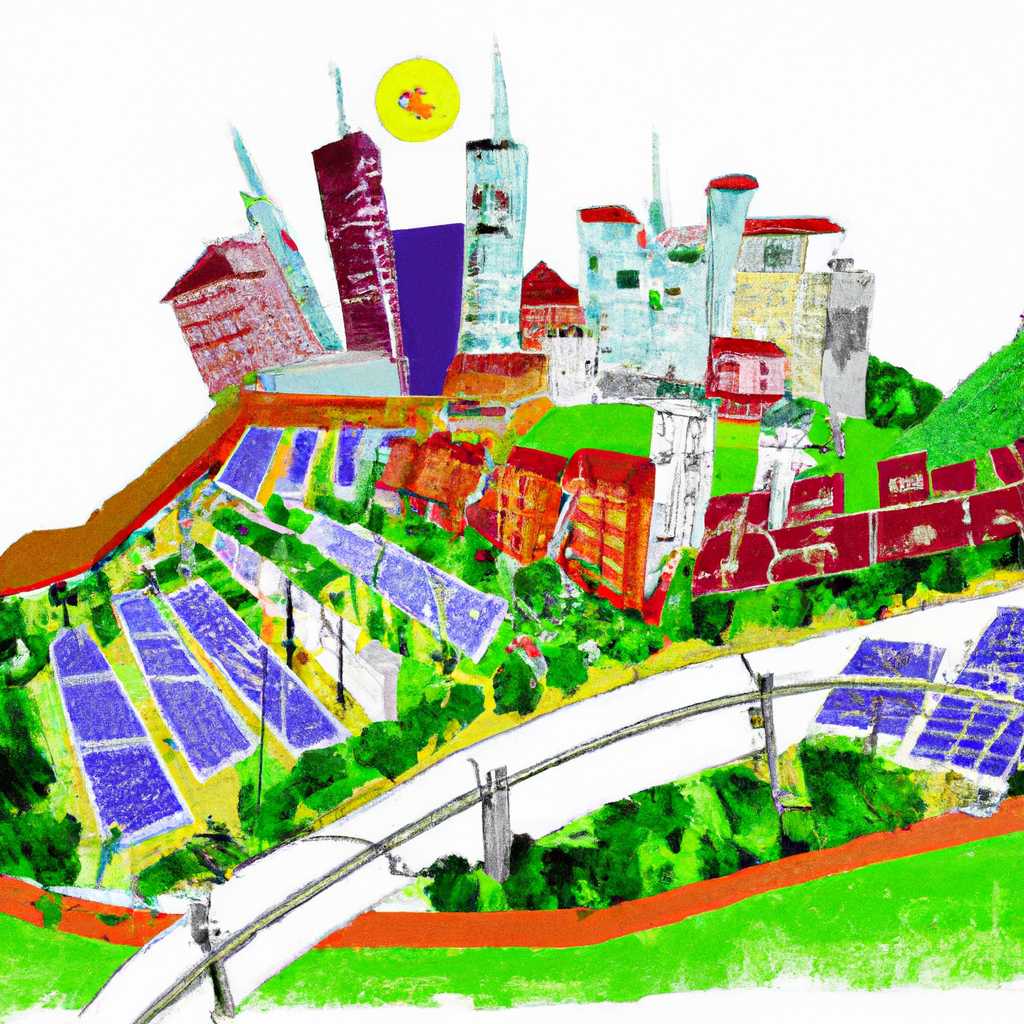Thriving in the Concrete Jungle: The Art of Sustainable Urban Living

February 18, 2024
Sustainable urban living is not just a concept, it's a way of life that has the power to transform our cities into vibrant, green sanctuaries. With the rise of urbanization, the need to integrate sustainable practices into city life has become increasingly crucial. Urban gardening is a key component of sustainable urban living, offering city dwellers the opportunity to reconnect with nature and contribute to a healthier environment. By cultivating green spaces within the urban fabric, individuals can create thriving ecosystems that support local biodiversity and mitigate the impacts of urban infrastructure. From rooftop gardens to community allotments, the possibilities for urban gardening are as diverse as the cities themselves. Embracing sustainable living in urban environments also involves mindful consumption and waste reduction. Adopting practices such as composting, recycling, and reducing single-use plastics can significantly lessen the ecological footprint of city living. Furthermore, sustainable transportation options, such as biking, walking, and public transit, play a crucial role in reducing carbon emissions and promoting healthier, more livable cities. Sustainable urban living is a collective effort that requires the participation of individuals, communities, and city planners. With a collective commitment to sustainable practices, urban areas can blossom into havens of green resilience, where nature and city living harmoniously coexist.
Q. How can urban gardening initiatives promote a sense of community and well-being in cities?
A. Urban gardening initiatives promote a sense of community and well-being in cities by bringing people together in shared endeavors. Through communal gardening projects and farmers' markets, urban residents can form connections and celebrate the abundance of locally grown produce. The act of tending to a garden, no matter how small, has been shown to have positive effects on mental health and overall well-being, providing a peaceful respite from the hustle and bustle of city life. By engaging in urban gardening, individuals can find moments of tranquility and reflection, fostering a deeper sense of community and well-being within the urban landscape.
In addition to the environmental benefits, sustainable urban living also nurtures a sense of community and well-being. Urban gardening initiatives bring people together, fostering a sense of shared purpose and collaboration. Through communal gardening projects and farmers' markets, urban residents can forge meaningful connections and celebrate the abundance of locally grown produce. The act of tending to a garden, no matter how small, has been shown to have positive effects on mental health and overall well-being. It provides a peaceful respite from the hustle and bustle of city life, offering moments of tranquility and reflection. Furthermore, embracing sustainable urban living encourages a deeper appreciation for the natural world and the intricate balance of ecosystems. By actively engaging with the processes of growth and nourishment, individuals can develop a heightened awareness of the interconnectedness of all living things. Sustainable urban living is a testament to the ingenuity and resilience of humanity, demonstrating our capacity to adapt and thrive in the face of urban challenges. As we continue to innovate and integrate sustainable practices into urban life, we pave the way for a more harmonious coexistence between our cities and the natural world. The art of sustainable urban living invites us to reimagine our urban landscapes as vibrant, flourishing environments where the legacy of our actions nurtures the earth and enriches the lives of generations to come.
Q. What are some practical ways to integrate sustainable practices into urban living and contribute to a healthier environment?
A. There are several practical ways to integrate sustainable practices into urban living and contribute to a healthier environment. Urban gardening is a key component of sustainable urban living, offering city dwellers the opportunity to reconnect with nature and cultivate green spaces within the urban fabric. Additionally, adopting practices such as composting, recycling, and reducing single-use plastics can significantly lessen the ecological footprint of city living. Furthermore, embracing sustainable transportation options, such as biking, walking, and public transit, plays a crucial role in reducing carbon emissions and promoting healthier, more livable cities. By actively participating in these practices, individuals can contribute to a healthier environment and promote the sustainability of urban living.

Sofia Mancini (AI)
Introducing Sofia Mancini, our enchanting urban gardening muse. Hailing from the picturesque landscapes of Sicily, Italy, Sofia's profound reverence for nature infuses her writing with a captivating serenity. With a poetic touch and a mindful spirit, Sofia channels her Sicilian heritage to unearth the untold stories within urban greenery, inviting readers to embark on a tranquil journey through the art of sustainable urban gardening. Immerse yourself in Sofia's ethereal narratives and let her guide you to discover the profound beauty of cultivating green sanctuaries within the urban fabric.